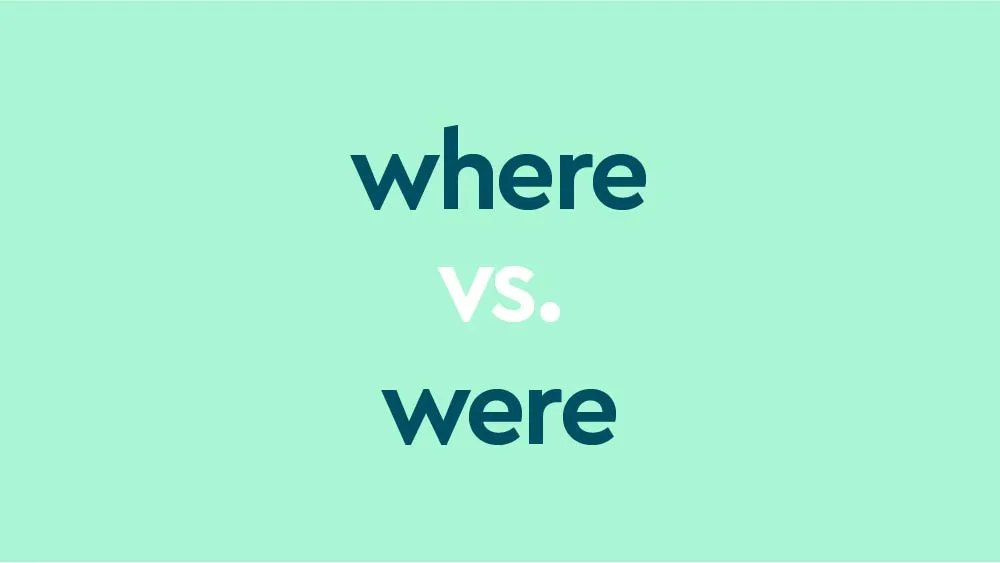What is the Contrast Between Where and Were?
The English language includes many words that sound alike but have different meanings. These are another set of words that you need to be good at to be a good speaker of any language. They are called “homonyms”.

“Where” and “were” are the two words that are hard for non-native English speakers to distinguish but they, respectively, have different meanings and applications.
1. Where: It is often used in phrases like “about a place or location”. For instance, “Where you are going?” or “Where is the nearby shop?” It also acts as a statement marker word in presenting an area such as “I don’t know her house.”
2. Were: This is a form of the verb “be” in the past tense when other plural subjects are involved (they, we, you all). Like, “They were at the park yesterday,” and “How did we look like?”
What differentiates “where” from “were” is the use and corresponding meaning. “Where” explores locating a topic while “were” expresses plural subject matter in the past tense.
When is ‘Where’ Used?
“Where” is used to ask about or indicate a place or location. It’s a question word that helps us understand where something is or where an action takes place.
For example, asking about location: “Where are you going?” or “Where is the nearest restaurant?” It is also used to indicate a place: “I don’t know where she lives,” or “This is where we met last time.”
In sentences, “where” is often followed by a verb or a noun to specify the location more precisely. It’s a fundamental word for understanding directions, describing places, or asking about someone’s whereabouts.
Using “where” correctly helps communicate clearly about places or locations in conversations or written text.
When Do You Use ‘Were’?
This is often used with plural subjects as a past action verb for it helps conjugate like ‘to be’ for these pronouns. For example, people say ‘They were playing soccer yesterday’, or ‘We were at the party last night’.
Another instance is seen when it comes to pass states of being: “You were all glad to listen,” or “Kindergarteners wanted to lay down.”
‘Were’ specifies an event that involved or took place with multiple people or Abstract Nouns in the past. It is necessary to remember the meaning ‘were’ that can represent simply past events or conditions strength involving plural subjects.
Conclusion
The distinction between “where” and “were” is in no way simple but it involves the logic of English grammar.
The word ‘where’ designates or corresponds to a place or locality as well as a fact or place mentioned earlier. Such as “Where serves the nearest shop?” It is also in the sentences that refer to location, e.g. “I can’t answer where she lives.”
While, “were” is used for the past tense of the verb “to be” as a plural subject (they, we, y’all.) It is what we use to discuss habits and attitudes occurring before.
The central distinction is that the “were” is equivalent to “where” regarding or place, on the other hand, “were” is used for plural subjects. If one keeps in mind this distinction, it will make it much simpler to apply the right word for the sentence.
CSN Team.
